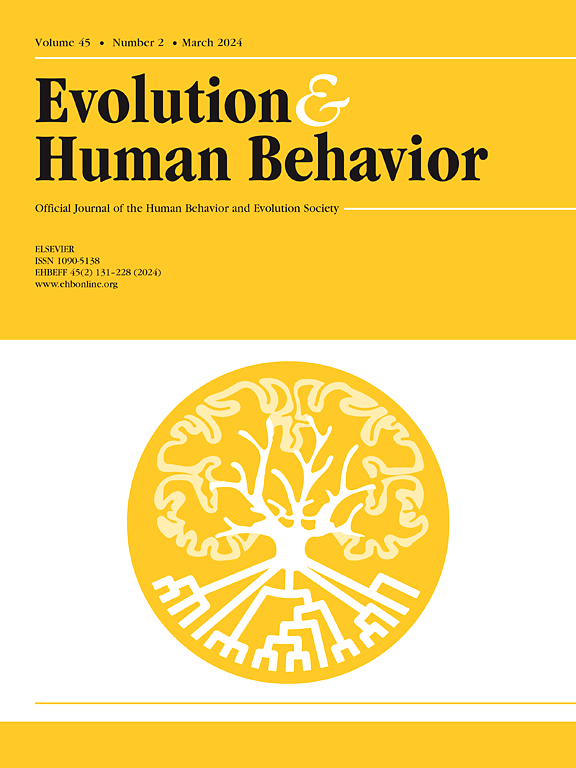文化的生态方法
IF 3.2
1区 心理学
Q1 BEHAVIORAL SCIENCES
引用次数: 0
摘要
文献中流行的观点认为,文化动态从根本上不同于其他生态过程,它受第二种继承系统的支配,需要一套单独的理论基础。然而,就其核心而言,文化只是个体之间及其共享环境相互作用的一种新兴结果——这正是生态学家经常研究的现象。事实上,在许多不被认为是文化的生态系统中,这种相互作用确实产生了稳定的种群差异、快速的创新、信息变化,甚至是累积的动态。这些现象在文化生态系统中更为明显,但在种类上并无不同。因此,我们认为文化生态系统应该通过与其他生态系统相同的机制进行研究——生态修饰、表型反应、遗产效应和生态级联。不同的生态系统可能需要特定的方法或概念,但没有根本不同的理论框架。这种文化通缩观的主要优势在于其简约性。如果文化从根本上来说并不是特别的,我们可以依靠同样强健且久经考验的框架——即包容性适应度理论——来理解文化生态系统中的人类行为,就像我们对动物行为所做的那样。反过来,包容性适应度理论可以帮助解释(i)文化丰富的生态系统中的个体行为,以及(ii)这些行为的相互作用如何产生我们称之为文化的大规模生态模式。本文章由计算机程序翻译,如有差异,请以英文原文为准。
The ecological approach to culture
The prevailing view in the literature treats cultural dynamics as fundamentally distinct from other ecological processes—governed by a second system of inheritance and requiring a separate set of theoretical foundations. Yet at its core, culture is simply an emergent outcome of interactions among individuals and with their shared environment—the very kind of phenomenon ecologists routinely study. In fact, in many ecosystems not considered cultural, such interactions do produce stable population differences, rapid innovations, informational changes, or even cumulative dynamics. These phenomena are more pronounced in cultural ecosystems, but they are not different in kind. Accordingly, we argue that cultural ecosystems should be studied through the same mechanisms as other ecosystems—ecological modifications, phenotypic responses, legacy effects, and ecological cascades. Different ecosystems may require specific methods or concepts, but not fundamentally different theoretical frameworks. The main strength of this deflationary view of culture lies in its parsimony. If culture is not fundamentally special, we can rely on the same robust and well-tested framework—namely, inclusive fitness theory—to understand human behavior in cultural ecosystems, just as we do for animal behavior more generally. Inclusive fitness theory, in turn, can help explain both (i) individual behavior in culturally rich ecosystems and (ii) how the interaction of such behaviors gives rise to the large-scale ecological patterns we call culture.
求助全文
通过发布文献求助,成功后即可免费获取论文全文。
去求助
来源期刊

Evolution and Human Behavior
生物-行为科学
CiteScore
8.30
自引率
9.80%
发文量
62
审稿时长
82 days
期刊介绍:
Evolution and Human Behavior is an interdisciplinary journal, presenting research reports and theory in which evolutionary perspectives are brought to bear on the study of human behavior. It is primarily a scientific journal, but submissions from scholars in the humanities are also encouraged. Papers reporting on theoretical and empirical work on other species will be welcome if their relevance to the human animal is apparent.
 求助内容:
求助内容: 应助结果提醒方式:
应助结果提醒方式:


